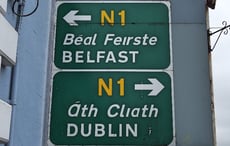The United Kingdom government has refused to release archived information on Irish paid police informants from over 100 years ago due to fears that their descendants could be shunned by their community or worse, targeted by dissident Republicans.
The UK Freedom of Information tribunal rejected an appeal by Cork historian Barry Keane after the Office and the Metropolitan Police refused to give out the documents. The tribunal struck out the appeal by a two-to-one majority. It found the files could damage the UK’s ability to recruit informants. It also concluded the information could expose the informant’s Irish descendants to boycott or even possible targeting by dissident Republicans.
They said it “believed it is by no means fanciful to suggest that on revelation that a person's ancestor was an informer, elements of the local community might choose to shun him or her, causing them distress.”
Keane told the tribunal it was ridiculous to suggest that members of the Provisional IRA, Real IRA, Continuity IRA and other versions of the IRA would act on this information pointing to the fact that the information was over 100 years old and those involved were long dead.
The historian believes these files could hold vital information on events such as the Phoenix Park murders of 1882 and what Britain knew about plans for a rising in the years before 1916.
He told the Irish Independent, “I believe this file is absolutely critical to our accurate knowledge of major events in Irish history and there is clearly no reason why it cannot be released.
"It is patently obvious that anyone mentioned in this file is now long since deceased."
Historian Keane and barrister Brian Leahy launched the challenge at a special UK information tribunal in London. They specifically asked the commissioners to direct the British Home Office, the Metropolitan Police and the UK Information Commissioners to release the full contents of the file.
The file, discovered in 2013, is called “Paid Informants in Irish Secret Societies 1886-1910.” It was discovered by Keane while he was researching the UK National Archive.




Comments